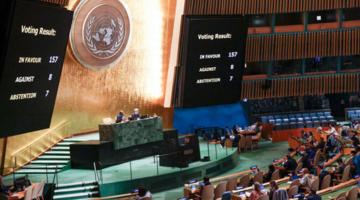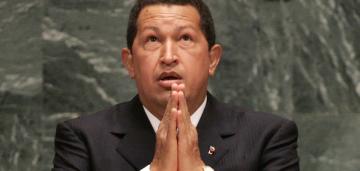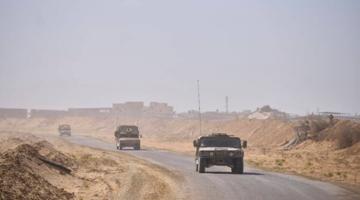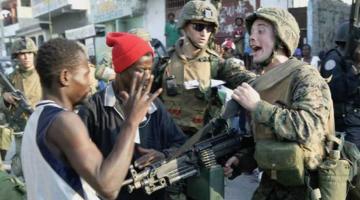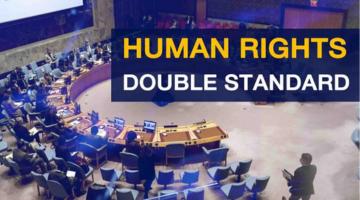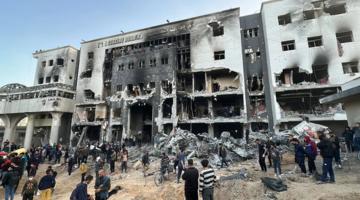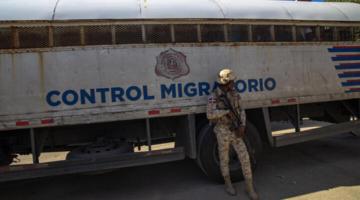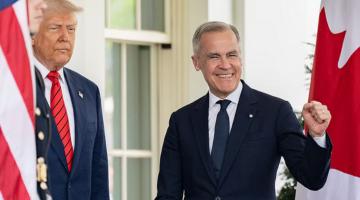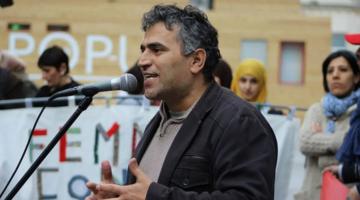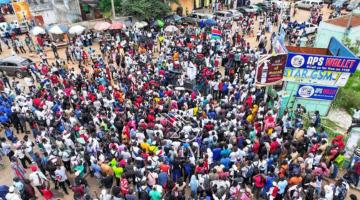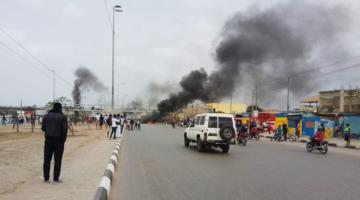Kenyan troops about to deploy to Haiti in June 2024. Their mission there has been a dismal failure. Photo: Kenyan Presidency
The empire has a new plan for Haiti, a return to military occupation dressed up as humanitarianism. Like past occupations, it will only increase the suffering of Haiti's people.
Originally published in Haiti Liberte.
The biggest problem for the Multinational Security Support Mission (MSS) has always been money. The proposed resolution, introduced on Aug. 28 by the U.S. and Panama (which sits on the UNSC this year and was its president during August), also seeks to rope the Organization of American States (OAS) into this unorthodox military project, by providing “food and water, fuel, transport, tents, defense stores, and appropriate communication equipment to enable interoperability with the GSF” [our emphasis], according to the would-be resolution’s first draft.
Biden’s proxy intervention force has not fared well, although one of his UN representatives at the time triumphantly called the MSS “a new way of preserving global peace and security.” The MSS was first proposed in October 2022, took a year to wangle its UNSC blessing (with Russia and China abstaining) in October 2023, did not deploy to Haiti until June 2024, has less than 1,000 of the 2,500 troops it had aimed for, and, by all assessments, has been a dismal failure. Two Kenyan soldiers have been killed, and one has disappeared and is presumed to be dead.
The GSF, on the other hand, would shoot for 5,500 troops (with 50 civilian personnel) authorized to “adopt urgent temporary measures” such as the “arrest and detention” of Haitians, thus unconstitutionally supplanting the PNH.
The Trump administration wants to override the eight-decade-old “peace keeping” structures and rules set forth in the UN Charter in 1945 and set up a de facto UNPKO
The resolution proposes that the U.S. and its allies would select a “Standing Group of Partners” (SGP) to provide “high-level strategic direction, oversight, and relevant political decision-making for the GSF” [our emphasis], relegating Haitian authorities to “consultation.” The SGP would appoint a GSF “Force Commander… who would be responsible for operational command and day-to-day operational decision-making,” sidelining the PNH and any rump government completely.
In a Feb. 24, 2025 letter to the UNSC, UN Secretary General Antonio Guterres proposed “comprehensive logistic and operational support to the [MSS], funded through a hybrid model of peacekeeping assessed funding for logistical and operational support.”
“Areas of support might include accommodation,” he continued, “life support (food, fuel, and water), mobility support (ground transportation, movement control, aviation), medical capability within and outside Haiti (including medical evacuation to higher levels of care), engineering and facility management support, general supply support, and communications, information technology, and Geographic Information System support.”
Guterres’ proposal, which was most surely encouraged by Washington, advanced the idea of partially funding a non-UN military force like the MSS from the UN’s Department of Operational Support but stopped short of suggesting the UN fund soldiers’ salaries, weaponry, and ammunition.
The current resolution crosses that already questionable line, proposing that UNSOH provide “full logistical support responsibility of the GSF” providing “rations, fuel, water, accommodation, and all necessary infrastructure to include the primary GSF base and any forward bases,” all the categories that Guterres mentioned, but also paying for (“reimbursing”) “all categories of lethal equipment” [our emphasis], including guns, bombs, drones, and tanks, and “intelligence gathering and analytical capabilities,” in other words, spying operations.
Washington also pretends that it is Guterres who is guiding its proposal to send more troops and more deadly weapons (not the other way around). “The mission would need to be scaled up in numbers and strengthened with additional military-grade capabilities and lethal equipment,” the U.S. and Panama wrote in their draft resolution.
In short, the Trump administration wants to override the eight-decade-old “peace keeping” structures and rules set forth in the UN Charter in 1945 and set up a de facto UNPKO, for which all UN member states would pay, but over which the UNSC would have no control or oversight. That supervision would belong to the Washington-selected non-UN “Standing Group of Partners.”
It is almost inconceivable that Russia and China would agree to this resolution, which one UN diplomatic source described as “very unclear.”
Russia foresaw that the MSS would be a disaster, with its UN Ambassador Vassily Nebenzia saying on the Oct. 2, 2023 passage of Resolution 2699 that “Haiti’s history has sufficient experience of irresponsible foreign interference” and that authorizing the MSS “is an imprudent thing to do.”
This past week, Dmitry Polyanskiy, Russia’s deputy ambassador to the UN, told the New York Times that the MSS’s “difficulties were predictable.”
“We warned about all of this at the very beginning,” he told the Times, “yet our warnings fell on deaf ears.”
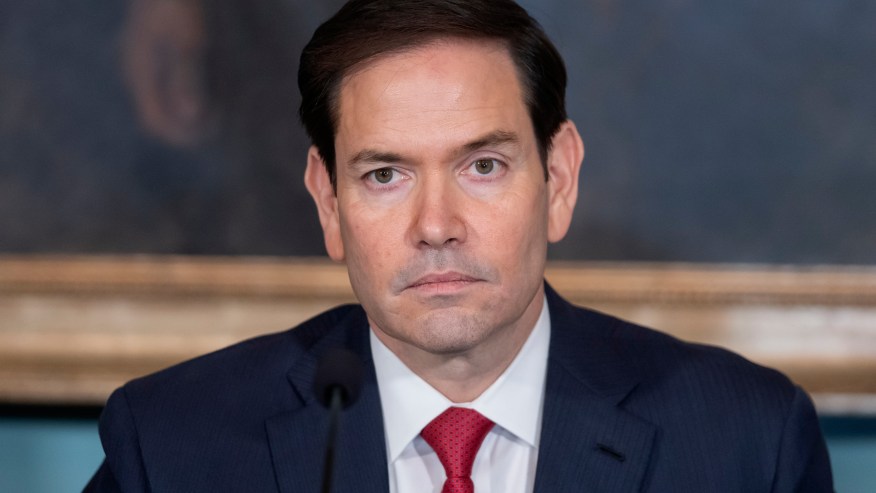 U.S. Secretary of State Marco Rubio is leading an obsessive campaign to involve the OAS militarily in Haiti. Photo: Mark Schiefelbein/AP
U.S. Secretary of State Marco Rubio is leading an obsessive campaign to involve the OAS militarily in Haiti. Photo: Mark Schiefelbein/AP
The draft resolution also reveals Rubio’s obsessive campaign to involve the OAS militarily in Haiti. Since the U.S. invasion of the Dominican Republic under the OAS flag in 1965, “Washington’s Ministry of Colonial Affairs” – as Cuba calls the body – has not engaged in any other interventions in the hemisphere. Following the bloody, brazen military operation in the DR to “stop communism” exactly six decades ago, Latin American countries have been very leery of even the appearance of siding with Uncle Sam in one of his imperialist rampages in the region. For example, the OAS did not give support to the U.S. invasions of Grenada in 1983 nor of Panama in 1989.
However, the draft resolution, co-sponsored by a right-wing Panamanian regime with its roots dating back to Washington’s intervention there, lays out how the OAS could get militarily enmeshed in a Haiti intervention.
Using the OAS’s SECURE-Haiti project, a 10-year training and mentoring program to strengthen the PNH, the OAS would get embedded in the GSF “through the construction of operational facilities and security infrastructure supporting joint planning and oversight of operations by the GSF and the [PNH], and by providing the basis for gathering, storing and sharing sensitive operational information,” among other collaboration, the draft resolution says.
It is unclear from the draft resolution whether the MSS would be supplanted by or integrated into the GSF. Currently, the MSS contains just over 700 Kenyan troops with the remaining soldier/cops from El Salvador, Guatemala, Jamaica, Belize, and the Bahamas.


